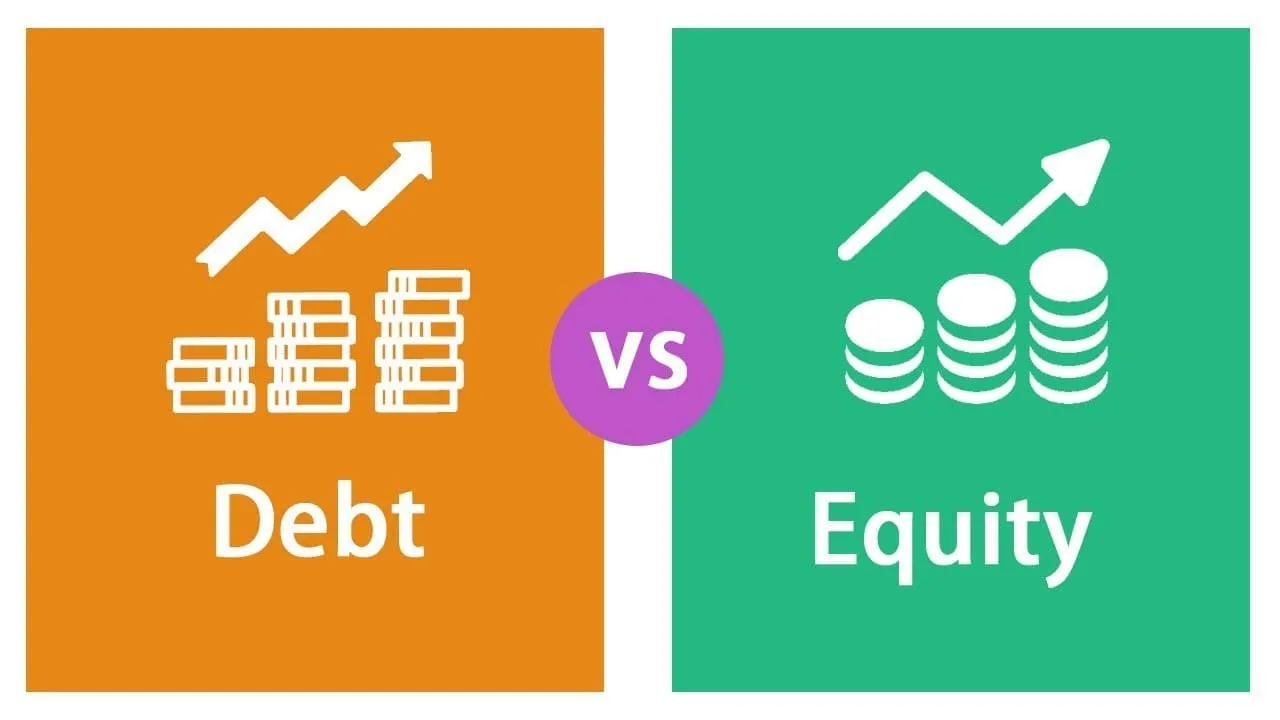Venture debt has become an increasingly popular option for startups seeking capital without giving up ownership. This type of financing, distinct from traditional debt financing, helps early-stage companies raise additional funds while keeping control over their equity.
According to CB Insights, nearly 44% of venture-backed startups use venture debt to extend their cash runway and minimize equity dilution. For startups looking to fuel growth, partnering with venture debt lenders can offer flexibility and keep their focus on scaling rather than giving away too much of their business.
What is a Venture Debt?

Venture debt is a specialized form of funding that allows startups to raise capital without diluting equity ownership.
Unlike traditional loans, venture debt is typically offered to startups that have already raised venture capital (VC) funding and are looking for additional resources to grow. It's a popular financing tool for early-stage companies that want to extend their cash runway, fund product development, or scale operations.
Instead of selling more shares, founders can opt for this option, thus preserving more control over their business. Essentially, venture debt provides a financial cushion while minimizing the need to give up more equity.
How Does a Venture Debt Work?
Venture debt works by providing startups with loans that are repaid over time, often with interest.
It’s not a typical loan you’d get from a commercial bank; instead, venture debt lenders look at factors such as the company’s growth potential and the strength of existing venture capital investors.
The terms for venture debt are usually more flexible than traditional bank loans, with lower interest rates and longer repayment periods. However, it may come with financial covenants or performance targets that the company must meet.
Venture debt is a great way for companies to secure additional funds without immediately diluting their equity, but it’s important to understand the risks and negotiate favorable terms.
Who are Venture Debt Lenders?

Venture debt lenders are financial institutions or companies that provide venture debt loans to high-growth businesses.
A venture lender plays a critical role in providing growth capital to startups in exchange for debt, offering a non-dilutive alternative to traditional equity financing.
Here’s who they are and how they operate:
Specialized Lenders: These include venture debt providers, non-bank lenders, and sometimes even venture capital firms.
Focus on Startups: They typically lend to an early-stage company that already have backing from venture capital investors.
No Ownership: Unlike equity investors, they do not take equity in the company. Instead, they offer loans with interest payments to be repaid over time.
Target Businesses: Venture debt lenders focus on companies with a proven track record or those that are in the growth stage and have strong potential for future success.
Attractive for High-Growth Companies: Venture debt loans are an attractive financing option for high growth businesses that need growth capital but don’t want to give up equity.
Loan Terms: The loan terms often include financial covenants and are based on the company’s business plan, cash flow, and company's assets.
Flexible Funding: For early-stage companies, it’s a great way to raise capital without the need for an equity raise or diluting their equity stake.
Why Venture Debt is a Smart Choice for Startups

1. Retain Ownership with Venture Debt
Venture debt allows startups to raise capital without giving up a significant equity stake in the company. Unlike equity financing, where a portion of ownership is sold to investors, venture debt helps you retain control.
This is especially important for early stage companies that need funding but want to avoid diluting their equity stake. By choosing venture debt, you can grow your company without losing too much control to external parties.
2. Flexible Funding for Growth
One of the key advantages of venture debt is its flexibility. It provides growth capital that can be used for a variety of purposes such as expanding operations, hiring new talent, or developing new products.
Whether it's a venture debt loan to fund immediate needs or a more structured deal from venture debt providers, the funding terms can be customized. This flexibility enables startups to scale quickly, making it an attractive financing option for high growth businesses.
3. Avoid Dilution Compared to Equity Financing
For early stage companies, the biggest concern when raising funds is often equity dilution. When you raise capital through equity rounds, you have to give up a portion of ownership to investors. This can lead to equity dilution over time, which could impact the long-term value of your company.
Venture debt eliminates this concern by offering debt financing options that don’t require selling equity. This allows you to preserve ownership while still securing the capital you need to grow.
4. Support from Venture Capital Investors
Many venture capital firms back venture debt financing, which provides startups with an added layer of support. By combining venture debt deals with venture capital, you can tap into the expertise and networks of venture capital investors.
These investors are often looking for high-growth companies with the potential to deliver strong returns, and their backing can increase your credibility when negotiating venture debt terms. This partnership also positions you for future funding rounds, making it easier to raise capital down the road.
5. Positioning for Future Funding Rounds
Startups that use venture debt wisely can position themselves better for future funding rounds. Venture debt lenders often see a company’s ability to secure venture debt loans as a sign of financial stability and confidence. By using venture debt to bridge the gap between equity rounds or maintain a cash runway, companies can demonstrate their financial discipline.
This can make you a more attractive investment opportunity for equity investors in the future. Additionally, having a venture debt loan on the books can show future investors that your company is actively managing its capital structure.
By focusing on venture lending as an alternative to traditional equity financing, you not only secure the funds needed to grow but also keep your company on track for successful venture debt deals and continued access to capital in the future.
6 Steps to Secure a Venture Debt

1. Evaluate Your Startup’s Eligibility
- Before you raise venture debt, assess whether your startup meets the eligibility criteria.
- Early-stage companies often qualify if they have a proven track record, strong growth potential, and a solid business plan.
- Make sure your company is cash flow positive and has assets like accounts receivable that can back the debt.
2. Find the Right Venture Debt Lender
- Choosing the right venture debt lender is crucial. You can approach non-bank lenders or traditional venture capital firms.
- Look for lenders that focus on high growth companies and understand your industry.
- Some venture debt providers may require you to demonstrate a proven track record of growth.
3. Prepare Financial Documentation
- Having well-organized financial documentation is key to securing a venture debt loan.
- Prepare up-to-date financial statements, a detailed cash flow analysis, and projections.
- Lenders will also want to see your company’s valuation and assets, such as accounts receivable, to assess risk.
4. Understand the Loan Terms
- Before proceeding, ensure you understand the loan terms. These include the interest rates, repayment schedules, and any financial covenants that may be included in the loan agreement.
- Make sure the terms align with your company’s goals, including minimizing equity dilution.
5. Negotiate the Deal
- Don’t hesitate to negotiate venture debt terms. You can negotiate loan agreements to secure flexible repayment schedules or equity protection, minimizing dilution.
- Involving early or existing investors in these discussions can also be beneficial.
- A venture debt deal is structured with specific terms, such as repayment schedules and interest rates, offering flexible funding while allowing you to retain ownership.
6. Sign the Agreement and Secure Funding
- Once both parties are in agreement, finalize the deal. Sign the loan agreement, secure the funding, and use it for your company’s growth.
- Remember, raising venture debt should be part of a well-thought-out strategy to position your company for future equity rounds.
This streamlined approach will help you navigate the venture debt process effectively and secure the funding you need to propel your business forward.
The Pros and Cons of Venture Debt Financing for Startups

Pros:
1. Retain Equity and Control:
Unlike equity financing, venture debt allows startups to retain ownership and control of the company. You don’t have to give up any equity stake.
2. Flexible Funding for Growth:
Venture debt loans provide growth capital that helps you scale your business without diluting your equity capital or giving up ownership.
3. Lower Cost of Capital:
Venture debt often comes at a lower cost of capital compared to equity capital, making it an attractive financing option for early-stage companies that want to minimize equity dilution.
4. No Equity Dilution:
With venture debt, there’s no need to raise equity or give up a portion of the company, preserving your equity stake.
5. Supports Future Funding Rounds:
By using venture debt, startups can extend their cash runway, which allows them to reach key milestones and attract future venture capital investors or secure additional funding in later equity rounds.
Cons:
1. Repayment Pressure:
One of the challenges with venture debt is the repayment pressure. The venture debt loan must be repaid, often in a short timeframe, which could strain your financials.
2. Higher Interest Rates:
While venture debt can be a good source of funding, it typically comes with higher interest rates than traditional bank loans, adding to the overall cost.
3. Risk of Default:
If the company does not meet its interest payments or cannot repay the venture debt, it could face default risk or even be forced to close.
4. Limited Availability for Early-Stage Startups:
Venture lenders are more likely to fund startups that have a proven track record, which means early-stage companies may find it harder to secure venture debt.
5. Potential Strain on Cash Flow:
Regular interest payments and loan repayments could strain your cash flow, especially if your company isn’t yet cash flow positive.
Venture Debt vs. Equity Financing: Which is Better for Your Startup?

When deciding between venture debt and equity financing, startups must consider their financial needs and growth stage.
- Venture Debt offers a way to raise growth capital without giving up any equity stake. It's ideal for companies that have already secured venture capital and need additional funding to extend their cash runway without diluting ownership.
- Equity Financing, on the other hand, involves selling a portion of your company to investors. While it brings in larger amounts of funding, it also means giving up some level of control and equity stake in your business.
Unlike in the equity round, which dilutes ownership, venture debt allows founders to retain more control over their company while still securing the capital needed for growth. For early-stage companies, venture debt may be a better choice to minimize equity dilution. However, if a business needs a significant amount of capital for long-term growth, equity financing might be necessary despite the equity dilution.
Both options have pros and cons, but the decision depends on your startup's unique needs and growth trajectory.
Conclusion
Venture debt is a powerful yet often overlooked funding option for startups looking to scale without giving up equity. By securing venture debt financing, early-stage companies can extend their cash runway, support growth, and position themselves for future funding rounds—all while retaining control and avoiding equity dilution.
However, it’s essential to understand the associated risks, such as repayment pressure and potentially higher interest rates. For startups with a proven track record and solid cash flow, venture debt can complement equity financing and offer a flexible, cost-effective funding solution.
As with any financial decision, startups should carefully evaluate their needs, growth stage, and the terms offered by venture debt lenders before moving forward. By balancing debt and equity wisely, startups can fuel their growth while minimizing financial strain.

.webp)



.png)



